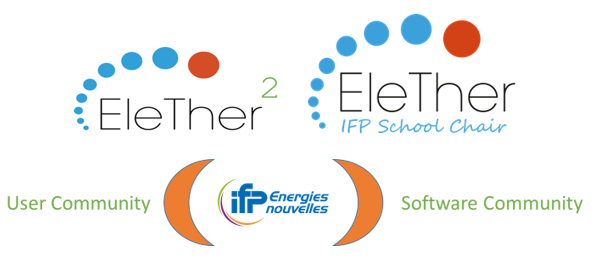The field of electrolyte thermodynamics is a strategic one for IFPEN since it contributes to a number of its existing technological innovations, as well as those currently being developed.
Examples of applications include:
> biological processes, conducted in aqueous environments;
> batteries using organic electrolytes;
> geothermal energy where high temperatures and corrosion are real challenges, with the aggressiveness of the environment being driven by its pH and ionic concentrations.
These applications are now joined by hydrometallurgy, a technique used to enable the recycling of metals from batteries and catalysts.
In parallel, the thermodynamics department is involved in several initiatives on the theme of electrolyte thermodynamics:
- The purpose of the IFP-School chair is to accelerate research with a view to improving the understanding of phenomena and describing them in a macroscopic model. It brings in other IFPEN departments to conduct measurements (phase equilibria, spectroscopy, conductometry).
- Participation in a European ERC project, led by the DTUa, provides access to high-quality discussions with researchers from several leading universities.
- The EleTher JIP provides a platform for addressing the issue of the transfer of models resulting from research with industrial partners. In fact, a model will only be used on a large scale if it is both available and properly parametrized in a commercial simulator. This partnership therefore involves close collaboration with software sellers.
- Investment in the Prométhée Research Group, bringing together 27 French laboratories, supports IFPEN’s new activities in the field of hydrometallurgy.

a- DTU : Danmarks Tekniske Universitet (Technical University of Denmark)
Scientific contacts: Jean-Charles de Hemptinne






